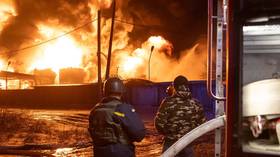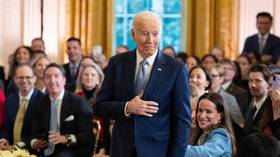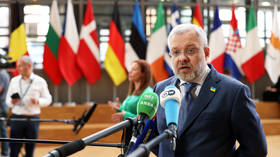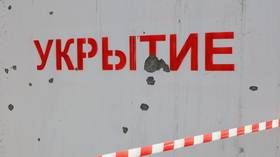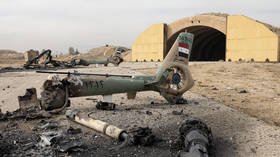Abkhazia shuts border after ‘Georgian terrorist attacks’
Abkhazia has closed its border with Georgia pending a special order, the Abkhazian Security Council has announced. Several explosions have been reported in the past two days, injuring several people. Abkhazia blames Georgia for waging a ‘terrorist war’ ag
According to Abkhazian presidential spokesman Kristian Bzhania, all posts on the Georgia-Abkhazia border were closed on Tuesday at 8 am local time. The main bridge over the Inguri river, connecting Georgia and Abkhazia, is also closed.
“The ban applies to civilians and vehicles. Only representatives of international missions accredited in Abkhazia will be cleared following consultations with the Foreign Ministry and State Security Council,” said Bzhania.
Abkhazian President Sergey Bagapsh is blaming the blasts on special forces taking orders from Tbilisi.
Georgian Foreign Minister Eka Tkeshelashvili said they regret that Abkhazia “took this very irresponsible and inadequate measure which jeopardises the means of communication and movement of people who live in Abkhazia”.
She said freedom of movement on the Inguri river benefits not only Georgians, but Abkhazians as well.
According to Maksim Gvindzhia, Deputy Foreign Minister of Abkhazia, seven people were injured in the latest explosion in the capital Sukhumi. They are being treated in hospital where some are believed to be critically injured. There are unconfirmed reports of fatalities, but, Gvindzhia stressed they are as yet unconfirmed.
One Russian tourist is believed to be among the injured.
The explosions, which went off in a crowded market on Monday are believed to have been caused by bombs hidden in bins.
It's the second such incident in two days. Six women were injured on Sunday in a blast in the city of Gagra.
Abkhazia is blaming Georgia for the explosions.
“These blasts are the work of Georgian special services. I’ve been saying for several years that it’s a country of terrorism. Their whole policy is based on terror, but we are going to fight it, and the situation will be under control. I can’t promise you that the same thing won’t happen tomorrow because anything is possible, but we’re taking all measures to find the terrorists,” President Bagapsh said.
But Georgian officials deny any responsibility for such incidents, calling them provocation.
“The accusations made by the authorities in Sukhumi against Georgia are not serious and are absolutely groundless. Tbilisi is constantly being blamed for all the negative events in the Abkhazia region, without waiting for any investigation of any of the evidence,” Georgia’s Defence Minister David Kezerashvili said.
Tbilisi wants the border reopened and says that its closure violates previous agreements. Abkhazia says the blockade may be lifted very soon. But first, they have to make sure that everything has been done to stop further attacks on the republic's resorts.
Sea link resumes between Russia and Abkhazia
On July 1, the first passenger boat in 15 years went from the Russian sea resort of Sochi to the Abkhazian city of Gagry.
The vessel Hermes can carry more than 200 people and will make four trips a day.
Voyages to Gagry were halted in 1992 after the beginning of the armed conflict between Georgia and Abkhazia.
Blocking the border
Abkhazia is a self-proclaimed republic that was part of the Soviet republic of Georgia.
After the fall of the USSR in 1991, Abkhazia's attempts to declare independence led to Georgia sending armed forces to Sukhumi and starting a full-blown war.
Fighting ended one year later when CIS peacekeepers, most of them Russian, went in to Abkhazia to separate the conflicting sides. Together with UN forces, they remain stationed in the bordering Gali region.
Georgia still considers Abkhazia part of its territory and wants to regain control over the region. Tbilisi also says that Russian peacekeepers should be withdrawn, which could raise tensions in the region.
Peace talks between the two sides broke down two years ago.
Recently, Georgia sent reinforcements to the region, sparking fears in Abkhazia that Tbilisi was planning a military campaign.
Russia responded by increasing its peacekeeping force up to 2,500, which Georgia claims is a move by Moscow aimed at annexing the region.


